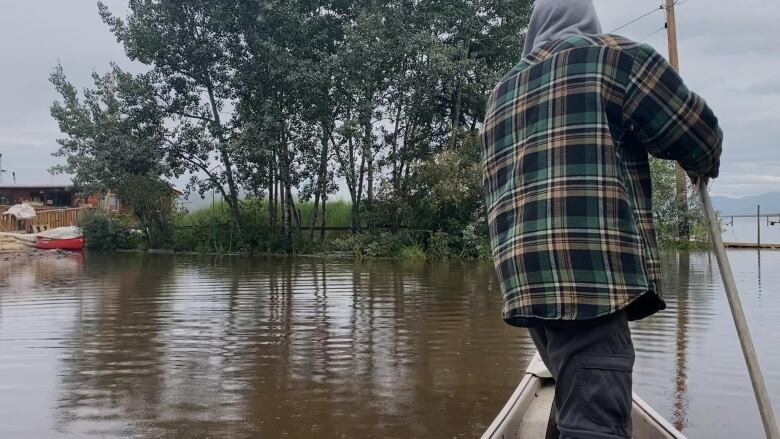Record-breaking snowfall could bring wet spring in parts of Yukon
Crews are working overtime to help clear snow from Whitehorse roads, says Mayor Laura Cabott

Over the past few weeks the Yukon, once again, received large dumps of snow, causing immediate problems — like impassable streets in some areas — and potential future problems like flooding in the spring.
Whitehorse, for one, hasn't received this much snow since December of 1980. As of Monday, the Environment and Climate Change Canada website shows the city had about 55 centimetres of snow on the ground.
Mayor Laura Cabott said crews have been working overtime to help clear roads.
But, she said as soon as workers make some headway, in comes another dump.
"We're trying to stay on top of it as much as we can, but, obviously, we're behind at this stage in the game," Cabott said.
Some side streets in Whitehorse — many of which remain uncleared — aren't prioritized right now. And that's with good reason as Cabott said the city's main roads are emergency and transit routes.
Cabott says city council will meet this week to begin looking at ways to better respond to large amounts of snow. She said turning to contractors could be an option.
'Nature's already telling us something'
Meanwhile, following the flooding last spring, thanks in large part to another record amount of snow, some fear another reckoning.
Benoit Turcotte, a hydrologist at the Yukon University research centre, says current weather patterns show that Yukoners could experience another wet spring.

"Obviously the potential for flooding next spring is already on the high side of things, higher than normal. It doesn't mean that it will flood, but it means that nature's already telling us something," Turcotte said.
Last summer saw major flooding in the southern lakes region with many areas were on evacuation alert while the military spent weeks filling sandbags and building berms.
Turcotte says those sorts of extreme events may become more common in the years ahead, and unless the rest of this winter season is much drier, the likelihood of a spring flood will remain high.
He pointed to B.C.'s climate events last year, which included record heat, significant forest fires, then record floods and then record cold.
"We're definitely entering an era of anomalies, of extremes," he said. Significant water peaks in the Southern Lakes in Yukon will also likely become more frequent, he added.
"And, that's very clear."
With files from Sissi De Flaviis and Vincent Bonnay